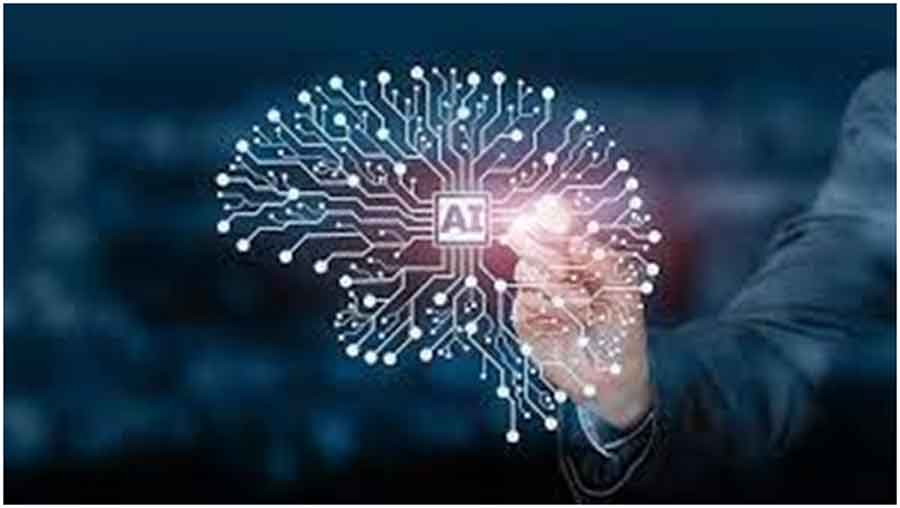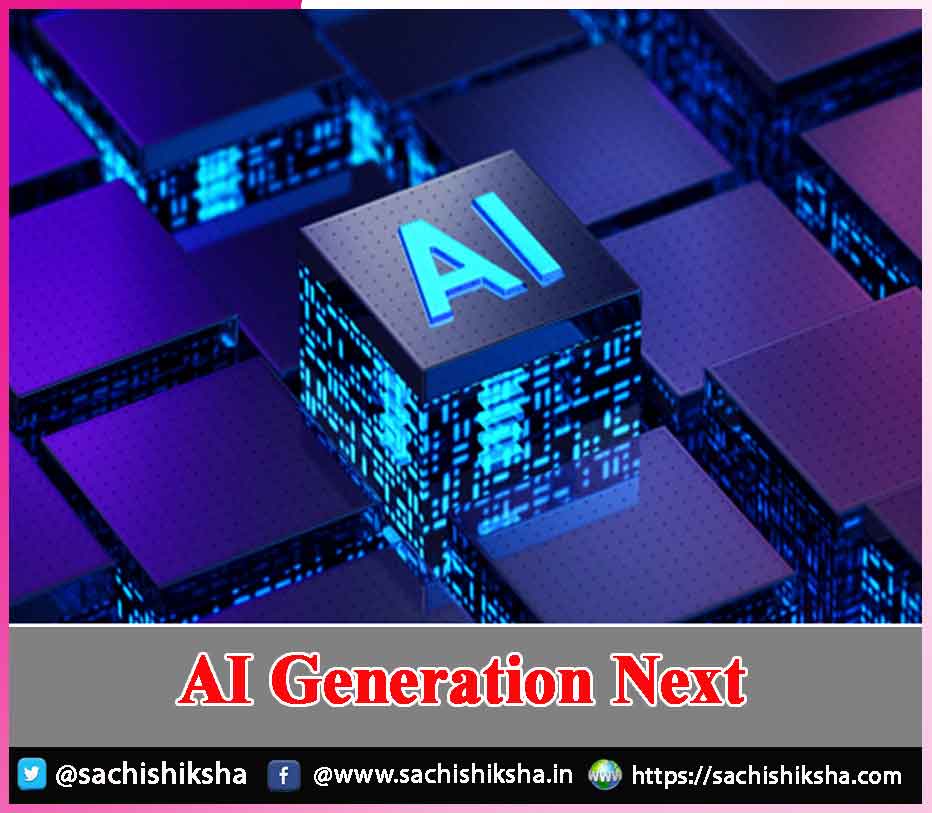AI Generation Next
Introduction: Artificial Intelligence (AI) has advanced quickly in the previous few decades, becoming a vital part of daily life rather than just a specialized technology. AI is on the cusp of a new era, often called “AI Generation Next.” It” is essential to explore the journey of AI, its current state, and its possibilities.
Table of Contents
The Evolution of AI:
The roots of AI can be traced back to ancient times, with early myths and tales featuring artificial beings created by humans. However, the formal inception of AI as a scientific discipline occurred in the mid-20th century. In 1956, John McCarthy coined the term “Artificial Intelligence” during the Dartmouth Conference, signaling the start of a new age in technology.
Ambitious goals and high expectations characterized the early years of AI, but progress was slower than anticipated. Due to unmet expectations and technical challenges, the first AI winter, a period of reduced funding and interest in AI research, occurred in the 1970s.
Advancements in machine learning and expert systems rekindled interest in AI in the 1980s. However, in the 21st century AI truly began to transform industries and daily life. The convergence of big data, improved algorithms, and powerful computing resources laid the foundation for AI’s exponential growth.
Current State of AI:
AI has impacted many facets of human life today, from virtual personal assistants and recommendation systems to complex healthcare, finance, and manufacturing applications. Machine learning, a subset of AI, has proven to be a game-changer, enabling systems to improve and learn from experience without being specifically designed.
Within machine learning, deep learning is a subfield that has grown in popularity, especially with the creation of neural networks that closely resemble the structure of the human brain. This has resulted in advances in natural language processing, autonomous systems, and image and audio recognition.
One key driver of AI’s current capabilities is the abundance of data. The more data an AI system can access, the better it can learn and predict. This has given rise to concerns about data privacy and the ethical implications of AI, prompting discussions and regulations to ensure responsible development and usage.
The AI Generation Next:

Explainable AI (XAI):
In pursuing accountability and transparency, researchers are concentrating on creating AI systems that can justify their choices. Explainable AI (XAI) aims to demystify complex algorithms’ “black box” nature, making AI more understandable and trustworthy. This is crucial, especially in sensitive applications like healthcare and finance.
AI and Creativity:
The next generation of AI is not only about solving complex problems but also about fostering creativity. AI systems are designed to collaborate with humans in creative endeavors, from generating art and music to assisting in creative writing. This symbiotic relationship between AI and human creativity has the potential to unlock new possibilities and redefine the boundaries of innovation.
Edge AI and Decentralization:
Edge AI involves processing data on local devices rather than relying on centralized cloud servers. This reduces latency and addresses privacy concerns by keeping sensitive information closer to the source. The AI Generation Next is witnessing a shift towards decentralized AI architectures, enabling smart devices to perform complex tasks independently without constant reliance on cloud connectivity.
AI in Healthcare:
The healthcare industry is experiencing a profound transformation through the integration of AI. AI is revolutionizing health approaches from diagnostics and personalized medicine to drug discovery and patient care. The next wave of AI in healthcare involves the development of predictive models that can anticipate health issues and recommend preventive measures, ushering in an era of proactive and personalized healthcare.
AI Ethics and Regulation:
As AI becomes more deeply ingrained in society, ethical guidelines and regulations are paramount. The AI Generation Next is witnessing increased efforts to establish ethical frameworks for AI development and usage. This includes addressing bias in algorithms, ensuring fairness, and preventing the misuse of AI technologies.
Human-AI Collaboration:
The future of AI is not about replacing humans but augmenting their capabilities. Human-AI collaboration is becoming increasingly prevalent, with AI systems complementing human skills and expertise. This collaborative approach extends across various domains, from business decision-making to scientific research, creating synergies that lead to unprecedented advancements.
Challenges and Considerations:
While the prospects of the AI Generation Next are exciting, it is essential to acknowledge and address the challenges that come with these advancements.
Ethical Dilemmas:
As AI systems become more sophisticated, ethical dilemmas arise, such as bias in algorithms, job displacement, and the potential for malicious use. To guarantee that AI serves humanity, a balance between innovation and ethical issues must be struck.
Data Privacy and Security:
The increasing reliance on data for training AI models raises concerns about privacy and security. Safeguarding sensitive information and preventing unauthorized access are critical challenges that must be addressed to build and maintain trust in AI technologies.
Regulatory Frameworks:
The rapid pace of AI development often outstrips the ability of regulatory bodies to keep up. Establishing robust and adaptive regulatory frameworks is essential to direct the ethical creation and application of AI technologies.
Conclusion: The AI Generation Next holds immense promise, pushing the boundaries of what was once thought possible. From advancements in explainable AI and human-AI collaboration to the ethical considerations surrounding data privacy, the future of AI is multidimensional and complex.
As we navigate this transformative era, it is crucial to approach AI development with a sense of responsibility and foresight. Balancing innovation with ethical considerations, ensuring transparency and accountability, and fostering collaboration between humans and AI will be essential to releasing the AI Generation Next’s complete potential and shaping a future where Artificial Intelligence enriches our lives in unprecedented ways.












































